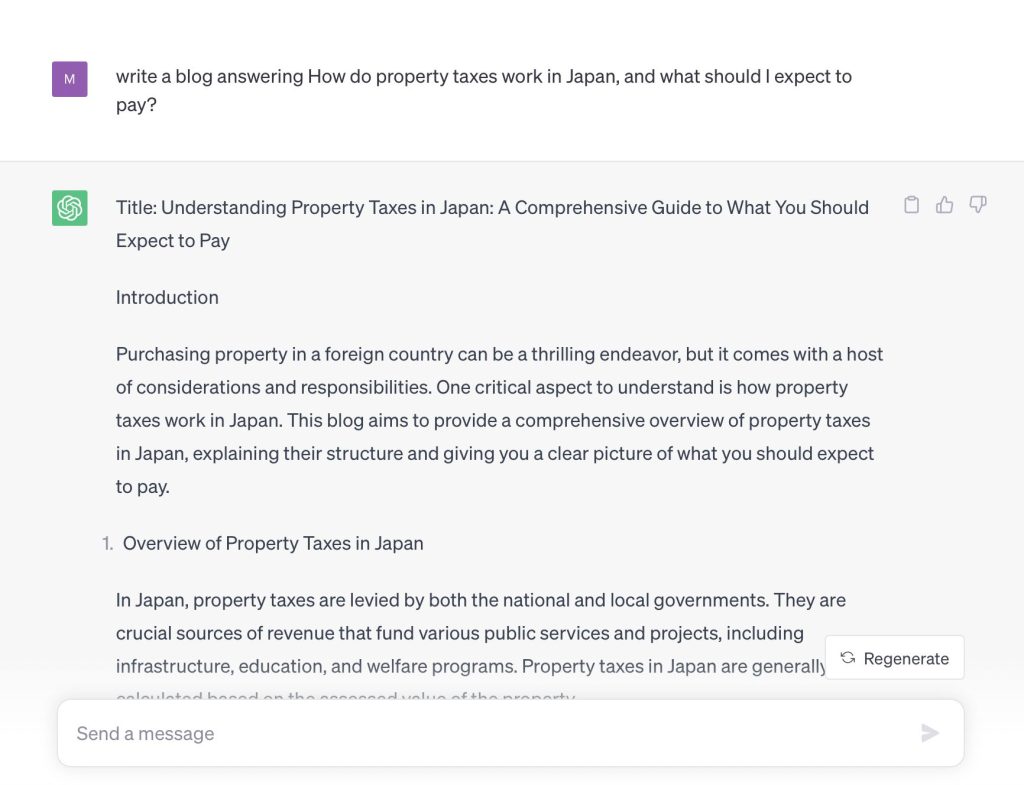
Purchasing property in a foreign country can be a thrilling endeavor, but it comes with a host of considerations and responsibilities. One critical aspect to understand is how property taxes work in Japan. This blog aims to provide a comprehensive overview of property taxes in Japan, explaining their structure and giving you a clear picture of what you should expect to pay.
Overview of Property Taxes in Japan
In Japan, property taxes are levied by both the national and local governments. They are crucial sources of revenue that fund various public services and projects, including infrastructure, education, and welfare programs. Property taxes in Japan are generally calculated based on the assessed value of the property.
Property Tax Types
Fixed Asset Tax (Kotei Shisanzei)
The Fixed Asset Tax, also known as “Kotei Shisanzei,” is the main property tax in Japan. It consists of two components:
i. Land Tax: This tax is imposed on the assessed value of the land itself.
ii. City Planning Tax: This tax is levied in conjunction with the land tax and is used to fund city planning initiatives and projects.
Special Property Tax (Tokubetsu Chizei)
The Special Property Tax is an additional tax on certain properties with high market values. It applies to urban areas and is designed to curb real estate speculation.
Calculating Property Taxes
To calculate your property tax in Japan, you need to know the following:
a. Assessed Value: The assessed value of your property is determined by the local government, typically based on the property’s market value and other relevant factors. It is essential to understand that this assessed value might not match the actual market value of your property.
b. Tax Rate: The tax rate varies depending on the location and type of property. Municipalities have the flexibility to set their tax rates within specific legal limits.
c. Exemptions and Deductions: Some properties, such as primary residences, may be eligible for exemptions or deductions, reducing the overall tax burden.
Payment Schedule
Property taxes in Japan are typically payable twice a year:
a. Summer Payment: Due in June or July
b. Winter Payment: Due in November or December
It’s crucial to pay attention to the deadlines to avoid penalties or interest charges.
*Check Summary*
What to Expect in Terms of Payment
The amount of property tax you should expect to pay in Japan will depend on various factors, including:
a. Property Type and Location: Urban properties generally have higher tax rates compared to rural areas.
b. Property Size: Larger properties generally incur higher taxes.
c. Assessed Value: A higher assessed value will result in higher taxes.
d. Special Property Tax: If your property falls under the special property tax category, you will have an additional tax burden.
Conclusion
Understanding property taxes in Japan is essential when purchasing or owning real estate in the country. The Fixed Asset Tax, along with the Special Property Tax, can significantly impact your overall financial responsibilities as a property owner. Familiarize yourself with the assessment process, tax rates, exemptions, and payment schedules to plan your finances effectively.
Consulting a local tax professional or real estate expert can be beneficial to ensure compliance with Japanese tax laws and optimize your tax planning. By being well-informed and prepared, you can navigate the intricacies of property taxes in Japan and enjoy your property investment with confidence.

ChatGPT has been a great series thus far! Definitely providing the baseline information needed when buying real estate in Japan.
One correction we would like to make is to the Payment Schedule mentioned above.
Granted, technically the payment schedule of being twice a year once in the summer and winter is not incorrect. The city does provided other payment schedule options when they send the tax notice typically in either April or May (depends on your municipal).
The city will provided a one lump sum payment, the bi-yearly payment, or the quarterly payments for the tax year from April 1st to the following March 31st.
We do agree with the AI to consult with a professional regarding property taxes, but one other piece of information we would like to add to property taxes or taxes in general is in Japan taxes are considered private information even though taxes are funding public endeavors.
We need consent, typically written consent from in this case the owner of said properties, to see the figures. This also includes the appraisals (Assessed Values mentioned above) for tax purposes.
This is the reason why tax figures are not on online advertisements.
For additional information or any questions please contact us here
Email: info@remax-apex.com

